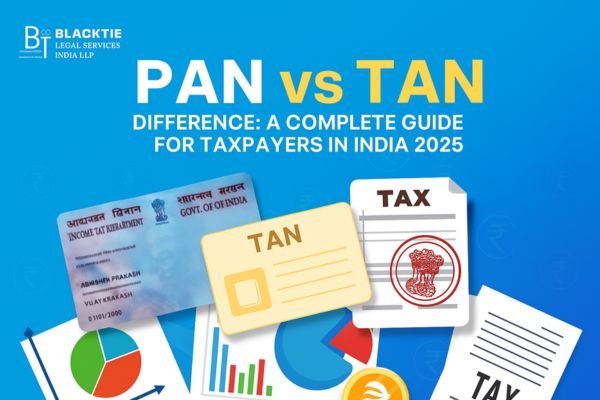What is FCRA Registration NGO? A Complete Guide for 2025
For Applying FCRA Registration Click Here… What is FCRA Registration NGO? FCRA registration NGO refers to the official approval granted by the Government of India that allows an NGO to legally receive foreign donations. Under the Foreign Contribution Regulation Act (FCRA), every NGO, trust, or society must obtain this registration before accepting any funds from outside India. The main purpose of FCRA registration NGO is to ensure that foreign money is used transparently and only for genuine social, educational, religious, or charitable activities. For NGOs working on large-scale community projects, FCRA registration plays a crucial role because it opens the door to international funding opportunities. Without FCRA approval, no NGO in India is legally permitted to accept foreign contributions. This registration also increases the credibility of the organisation, builds trust with donors, and shows that the NGO follows all government compliance rules. In simple terms, FCRA registration NGO acts as a legal gateway for NGOs to expand their impact using foreign support. Eligibility Criteria for FCRA Registration NGO To apply for FCRA registration NGO, an organisation must meet certain eligibility conditions set by the Government of India. These rules ensure that only genuine, responsible, and active NGOs receive permission to accept foreign contributions. The first major requirement is that the NGO must be registered as a Trust, Society, or Section 8 Company under Indian law. Unregistered or informal groups cannot apply for FCRA approval. Another important eligibility criterion is that the NGO should be actively working for at least 3 years before applying for regular FCRA registration. During these 3 years, the NGO must have carried out genuine social activities and should have proper financial records to prove its work. The organisation must also show that it has spent a minimum amount (usually ₹15 lakh) on its charitable projects from its own funds. This amount may vary based on the latest government rules. The NGO must not have any history of legal violations, fund misuse, or activities that go against national interest. For successful FCRA registration NGO, the organisation should maintain clean financial statements, audited accounts, and a transparent governance structure. Additionally, the NGO’s objectives must fall under permitted categories such as education, health, social welfare, culture, environment, religious activities, or humanitarian assistance. Overall, these eligibility criteria ensure that only trustworthy NGOs receive FCRA registration and can responsibly manage foreign donations. Documents Required for FCRA Registration NGO To successfully apply for FCRA registration NGO, the organisation must submit several important documents that prove its legal existence, financial transparency, and credibility. These documents help the government verify that the NGO is genuine and capable of handling foreign contributions responsibly. Having all documents ready in advance makes the application process smoother and faster. The essential documents required for FCRA registration NGO include: 1. Registration Certificate of the NGO A copy of the Trust Deed, Society Registration Certificate, or Section 8 Company Incorporation Certificate is mandatory to prove the NGO’s legal status. 2. PAN Card of the NGO A valid Permanent Account Number (PAN) establishes the organisation’s financial identity for compliance purposes. 3. Memorandum of Association (MOA) or Articles of Association (AOA) These documents outline the NGO’s objectives and help the authorities confirm that the activities align with FCRA rules. 4. Audited Financial Statements (Last 3 Years) The NGO must submit audited balance sheets, income-expenditure statements, and receipts-payments statements to show financial stability and transparency. 5. Activity Reports Detailed annual activity reports for the last 3 years demonstrate that the NGO has been actively working on social or charitable projects. 6. Details of Key Members Information such as names, contact details, Aadhaar/PAN numbers, and designation of governing body members is required to verify their background. 7. Bank Account Details (FCRA Account) A dedicated FCRA bank account must be opened in a notified bank branch to receive foreign funds. This account detail is mandatory to add in the application. 8. Commitment Letters (Optional but Helpful) If the NGO has any confirmed foreign donor commitments, attaching these letters strengthens the application. 9. Self-Declaration and Compliance Statements Statements confirming that the NGO is not involved in prohibited activities and follows all legal norms are also required. In short, collecting the right documents is one of the most crucial steps for FCRA registration NGO. Proper documentation increases the chances of approval and ensures a smooth registration process. Step-by-Step Process for FCRA Registration NGO Online Applying for FCRA registration NGO online is a simple and fully digital process through the official FCRA portal. The government has made the entire system transparent and user-friendly so NGOs can easily submit their applications without paperwork. Below is the step-by-step process to help you understand how FCRA registration is done online. Step 1: Visit the Official FCRA Portal Start by visiting the Ministry of Home Affairs (MHA) FCRA website. All applications for FCRA registration NGO must be submitted only through this portal. Step 2: Create a User ID and Password Register your NGO on the portal by creating a new login account. You will need basic details such as the organisation’s name, email ID, and contact information. Step 3: Choose the Correct Application Form (Form FC-3A) For fresh FCRA registration NGO, select Form FC-3A. NGOs applying for prior permission must choose Form FC-3B. Step 4: Fill in the NGO’s Basic Details Enter all required information, including registration details, PAN number, address, and objectives of the NGO. Make sure these details match your legal documents. Step 5: Add Key Members and Governing Body Information Provide the details of your NGO’s key office bearers such as President, Secretary, and Treasurer. Aadhaar/PAN details are required for verification. Step 6: Upload All Required Documents Upload scanned copies of documents such as: Uploading correct documents improves the chances of approval. Step 7: Enter FCRA Bank Account Details For FCRA registration NGO, you must have a dedicated FCRA bank account opened in the State Bank of India (New Delhi Main Branch) or any other approved bank as per the latest rules. Step 8: Review the Application Carefully










